
Nick Inman
Writer, editor, translator, photographer, teacher
Born in Harrogate (Yorkshire, UK) 1956. Travelled to India overland, via pre-war Afghansitan, 1977. BSC Politics Bristol University, 1978. Founder and director of Harrogate Fringe Festival, early 1980s. Resident at the Findhorn Foundation in Scotland. First book published in 1984. Moved to Spain in 1985. Deputy editor of Costa Blanca News, 1990. Contributing editor of Charming Small Hotels Guide Spain, Lookout Magazine and many other publications, including The Guardian, The Yorkshire Post and The Financial Times. Moved to London 1993. Assistant editor of Playdays magazine, London 1993.
Senior editor for the Dorling Kindersley Eyewitness 1994-1999. Relocated to southwest France in 2002. Currently working as as a writer, translator and teacher of effective business communication to undergraduates at the University of Tarbes and CESI engineeering school, Pau. Columnist for the Connexion – France’s English-language newspaper
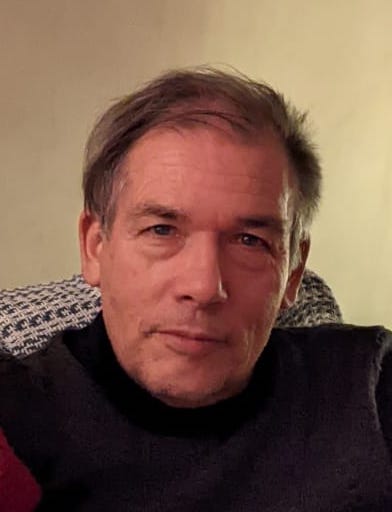
Publications
History is – or should be – fact; but how can we be sure of what we are told? Too often we accept stories about the past because preceding generations assure us they are true. The longer the tradition, the stronger the evidence. If the facts have been checked and rechecked by experts then why should we doubt them? Join Nick Inman in a detective story as he attempts to answer a simple question: what proof is there that a Huguenot army led by the vindictive Count of Montgomery burned Larreule village church in 1569? Every authoritative work from the 16th century to the present day is consistent in blaming Montgomery for this act of arson and pillage. Strangely, however, the facts do not support the accusation. Apply scientific scepticism to this “cold case” and the result has repercussions far beyond a tiny village in Bigorre. If historians are wrong about this one matter what other errors are they repeating, unchecked? The investigation leads to only one possible conclusion: in light of the evidence, we are obliged to rewrite the history of the French Wars of Religion.
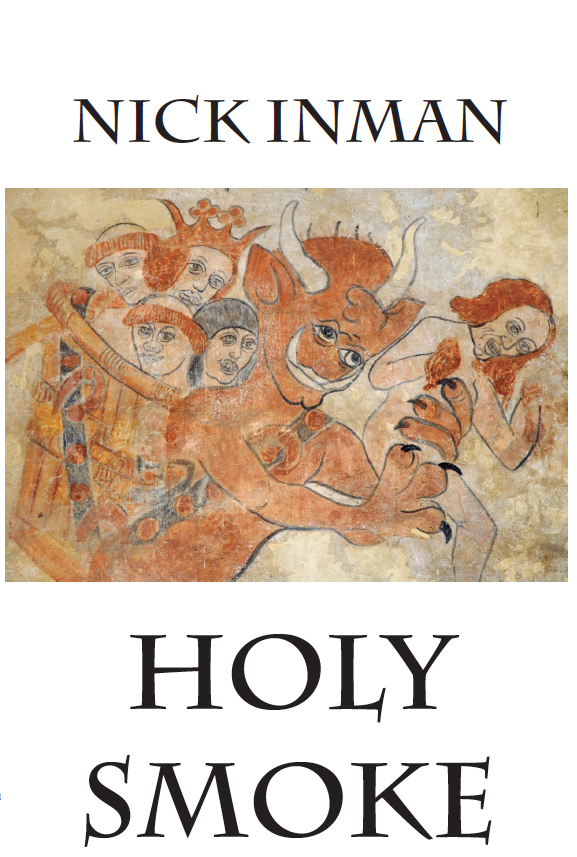
In 1977 Nick Inman travelled overland to India by public transport. The sudden fall of Kabul in the summer 2021 reminded him of the time he spent in Afghanistan and prompted reflections on how the country and the world has changed since then. The late 70s now seem like a cusp between the dream of a better world, embodied by Hippy idealism, and the disillusion that set in during the 1980s. What lessons are there to learn about the choices we have made? How can we make better choices in the future?
The Last Summer of the Hopeful World centres around the diaries of his trip. It is an invocation of lone, independent travel before mobile phones and GPS systems and tentatively suggests some ways in which we may be able to recapture a sense of hope.
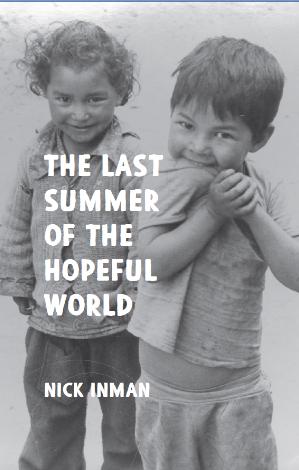
There is the France you see and there’s the France you don’t: a parallel geography glimpsed through sacred sites and symbols if you know where and how to look.
You don’t have to believe in other worlds, just be open to where the evidence leads.
Cathars, Templars, alchemists, megaliths, Romanesque churches, Gothic cathedrals, prehistoric cave paintings and much more with a guide to where to find what.
Winner, Foreword Indies Travel Award.
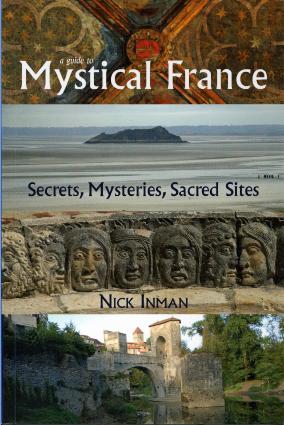
The British political system is an eccentric beast. Much of it is hidden or follows obscure esoteric rules. This book takes a plain look at some lesser known aspects of it and reveals why the primary requirement to be prime minister is to have a good head of hair; how the budget can be jotted down on the back of an envelope; how the British Empire has shrunk to a handful of far-flung territories. Along the way, the reader learns to decipher acronyms; gets to know anarchists; and finds out who stabbed who in the front and why. Politipedia also covers strikes, cartoons, comedy, films, the Establishment, whipping and what Shakespeare has to say about politics in 150 lists of all things curious.
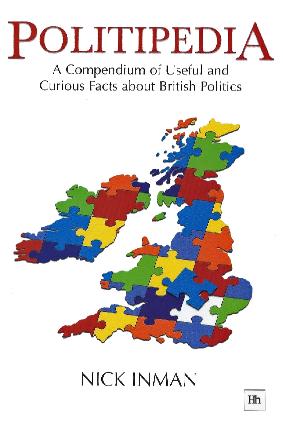
Travel the Liberation Route Europe is a transnational remembrance trail, which connects the regions, sites and stories of the Liberation of Europe from Nazi occupation at the end of World War II, (1943-45).
It is both a guide to history and to contemporary tourism. It takes a multinational approach. There are features on resistance mouvements, bombing and atrocities. By remembering the price that was paid for peace by a previous generation it is to be hoped that we never have to pay that price again.
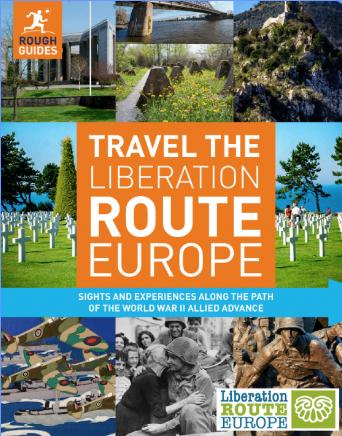
“Are you who you say you are?” We don’t know much about ourselves as we think and that poses some problems. Hos can we know anything at all if we don’t know who or what is doing the knowing? How can science investigate the universe before it calibrates this biological machine of knowing which is a human being? Materialists get around the problem by saying that the self – “you” – doesn’t exist. You are just so many atoms, a “brain braining” Don’t you believe them. Next time someone asks you to identify yourself, give them a complete answer.
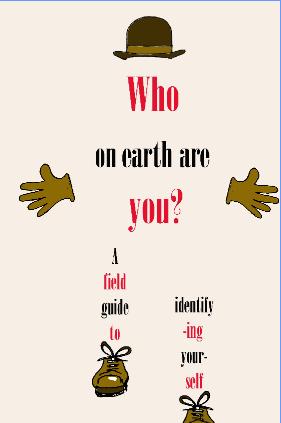
Travel Writing
I’ve been travelling since the 1970s when I spent a year in Australia and New Zealand and then went overland to India. For several years, at the height of the travel guide boom, I worked as a commissioning senior editor for Dorling Kindersley (DK) Eyewitness series. I oversaw guides to Spain, Istanbul, Mexico and the Holy Land from first draft to published title. Subsequently, as a freelance travel writer I decided that rather than getting to know the whole world superficially I’d rather become intimately familiar with three countries: France, where I currently live; Spain, with which I have a close connection and my native country the United Kingdom. I have written a great number of books for Insight Guides – for whom I created their guide to Southwest France – and also worked for Rough Guides, the AA, Thomas Cook, WH Smith. I regularly update sections of Fodor’s guide to France. Lately I have been developing two special themes: European rail travel (increasingly relevant as a form of sustainable travel) and commemoration tourism, in the form of a guide to the 1945 Liberation routes of Europe.

Courses and Seminars in English for University Students
Some people find learning a foreign language easy while others struggle but it comes down to the ability to communicate not to know grammatical rules. I believe than anyone, with the appropriate guidance, can attain a functional level of English . As an educationalist working in higher education (from undergraduate level to masters), my approach is to eliminate the English that no one needs as a first priority (of the 160 irregular verbs in English only 30 are must-knows). In class, at university or in a private professional higher education college, my mission is to discover what each student needs and to give him or her a chance to practice in a nurturing environment. I’m particularly proud of the three modules – covering the food trade, tourism, and the business of making streaming series – I have developed to enable business students to have an immersive, simulated real-world experience to develop functional English skills. I also run 3-hour seminars entirely in English, with visual supports, for business and tourism students.
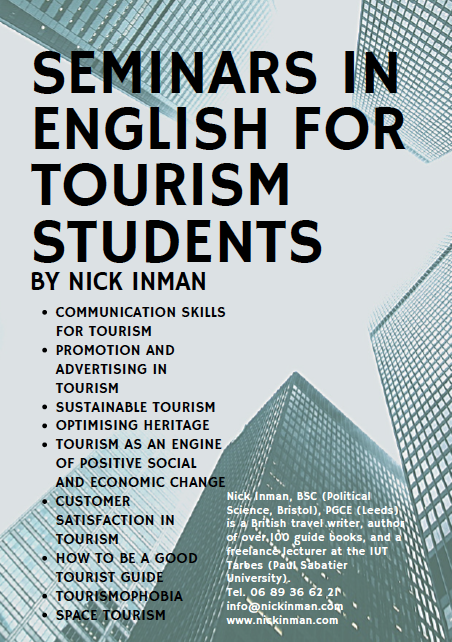
Journalism
Good journalism is the means through which individuals in large societies speak to each other. Let other journalists do breaking and rolling news; my interest is elsewhere. I focus on two other areas of the profession. One is researching and writing features that share information which otherwise may not get an airing. My other area of passion is constructing closely argued, evidence based comment or opinion pieces. I have contributed to a large number of newspapers, magazines and websites including the Guardian, the Financial Times, Politicos and Open Democracy. For many years I was correspondent for Windpower Monthly in Spain and France reporting on the growing renewable energy industry. Currently I have found a home in the Connexion, France’s premier, monthly English-language newspaper for which I write four columns explaining aspects of France to its British and American residents. I am a long standing member of the National Union of Journalists.
